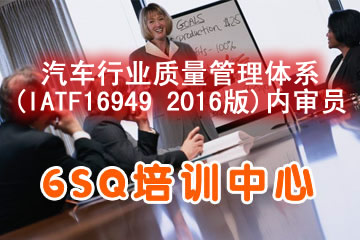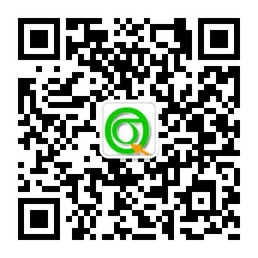Document: ISO/TC 176/SC 2/N525R2(轉載)
Document: ISO/TC 176/SC 2/N525R2October 20081. Introduction 引言Two of the most important objectives in the revision of the ISO 9000 series of standards have been 这次ISO 9000系列标准修订的目的中有两个最重要的目标:to develop a simplified set of standards that will be equally applicable to small as well as medium and large organizations, and for the amount and detail of documentation required to be more relevant to the desired results of the organization’s process activities. a) 使文件化形式简化,适用于小型,同时也适用于中、大型组织,以及b) 要求文件化数量和详尽程度更加和组织的各个过程活动结果联系起来。ISO 9001:2008, Quality management systems – Requirements has achieved these objectives, and the purpose of this additional guidance is to explain the intent of the new standard with specific regard to documentation. 2008版ISO 9001《质量管理体系要求》已经达到了这些目的,本附加指南专门从文件化方面说明新版标准的意图。ISO 9001:2008 allows an organization flexibility in the way it chooses to document its quality management system (QMS). This enables each individual organization to develop the minimum amount of documentation needed in order to demonstrate the effective planning, operation and control of its processes and the implementation and continual improvement of the effectiveness of its QMS. ISO 9001:2008 让组织在选择用什么文件描述质量管理体系时可更加灵活了。这样,可以让每个组织能用最少数量的文件来展示有效的策划、运作和控制各种过程并加以贯彻实施和持续改进质量管理体系的有效性。It is stressed that ISO 9001 requires (and always has required) a “Documented quality management system”, and not a “system of documents”.必须强调指出,ISO 9001:2008 要求(过去一直如此要求)“ 文件化的质量管理体系 ”而不是一个“文件的体系”。2 What is a “document”? - Definitions and references 什么叫“文件” ? -术语和定义The following are some of the main objectives of an organization’s documentation, independent of whether or not it has implemented a formal QMS;以下是一个组织为什么要文件化的某些主要目的,不管这个组织是否已经贯彻实施一个正式的质量管理体系:a) Communication of Information 沟 通 信 息as a tool for information transmission and communication. The type and extent of the documentation will depend on the nature of the organization’s products and processes, the degree of formality of communication systems and the level of communication skills within the organization, and the organizational culture. a)文件作为信息传递和沟通的一种工具。文件化的型式和程度将取决于组织所生产产品和采用过程的性质、组织内部相互沟通系统的格式化程度、沟通技能的水平以及组织的文化。b) Evidence of conformity 提供符合性的证据provision of evidence that what was planned, has actually been done.——提供证据证明已经做过策划,实际上已经按照策划做过了什么工作,结果如何。 c) Knowledge sharing 分享知识to disseminate and preserve the organization’s experiences. A typical example would be a technical specification, which can be used as a base for design and development of a new product.为了传播并保留组织的经验。典型的例子譬如技术规范可以用来作为设计和开发新产品的基础。A list of commonly used terms relating to documentation is presented in Annex A (taken from ISO 9000:2005). It must be stressed that, according to ISO 9001:2008 clause 4.2 Documentation requirements documents may be in any form or type of medium, and the definition of “document” in ISO 9000:2005 clause 3.7.2 gives the following examples:附录 A 列出了常用的与文件有关的各种术语(录自ISO 9000:2005 )。必须重点说明,根据ISO 9001:2008 4. 2 条“文件化的要求”规定,文件可以用各种形式或各种媒介,根据ISO 9000:2000 第3.7.2条对文件所下定义中列出的例子有: paper 纸的;magnetic 磁的;electronic or optical computer disc 计算机用的磁盘或者光盘;photograph 照相;master sample标准样件。Users are also referred to ISO/TR 10013:2001, Guidelines for quality management systems documentation for further guidance. 读者可以进一步参阅ISO/TR 10013《质量管理体系文件化指南》。3 ISO 9001:2008 Documentation Requirements ISO9001:2008对文件化的要求ISO 9001:2008 clause 4.1 General requirements requires an organization to “establish, document, implement, and maintain a quality management system and continually improve its effectiveness in accordance with the requirements of this International Standard”ISO9001:2008标准第4.1条总的要求中要求组织“按照本国际标准的各项要求建立、文件化、执行和维持质量管理体系和持续改进体系的有效性。”Clause 4.2.1 General explains that the quality management system documentation shall include:ISO9001:2008第4.2.1条总的解释质量管理体系文件化应包括:documented statements of a quality policy and quality objectives; a quality manual 形成文件的质量方针和目标;documented procedures required by this International Standard documents needed by the organization to ensure the effective planning, operation and control of its processes, and records required by this International Standard;国际标准要求形成文件的程序以及组织为了确保他们的各个过程有效策划、运作和控制而必须形成文件化的程序;The notes after Clause 4.2 make it clear that where the standard specifically requires a “documented procedure”, the procedure has to be established, documented, implemented and maintained. It also emphasizes that the extent of the QMS documentation may differ from one organization to another due to:国际标准第4.2条后面有一个注,清楚说明,凡是标准规定要“形成文件的程序”,那么,这个程序必须建立,形成文件,执行和维持这个程序。它还强调,组织和组织之间的质量管理体系文件化的程度可以根据以下情况是不同的。the size of organization and type of activities; 组织的规模和活动的类型;the complexity of processes and their interactions, and 过程的复杂性以及过程和过程相互作用,和the competence of personnel. 人员的胜任能力;All the documents that form part of the QMS have to be controlled in accordance with clause 4.2.3 of ISO 9001:2008, or, for the particular case of records, according to clause 4.2.4.所有形成质量管理体系组成部分的各种文件都必须按照ISO9001:2008标准第4.2.3条要求加以控制,或者,各种特定的记录,按照第4.2.4条要求加以控制。4 Guidance on Clause 4.2 of ISO 9001:2008 ISO9001:2008标准第4.2条要求的辅导The following comments are intended to assist users of ISO 9001:2008 in understanding the intent of the general documentation requirements of the International Standard. 以下内容是帮助标准使用者理解ISO9001:2008文件化要求总的意图:a) Documented statements of a quality policy and objectives: 质量方针和各种目标要用文件来阐明Requirements for the quality policy are defined in clause 5.3 of ISO 9001:2008. The documented quality policy has to be controlled according to the requirements of clause 4.2.3. 质量方针要符合ISO9001:2008标准第5.3条规定的要求。要形成文件,按照第4.2.3条要求加以控制。Note: Organizations that are revising their quality policy for the first time, or in order to meet the amended requirements in ISO 9001:2008, should pay particular attention to clause 4.2.3 (c), (d) and (g).注:凡是第一次对他们的质量方针进行评审的组织,或者看了ISO9001:2008的补充解释而对他们的质量方针进行评审的组织,特别要注意满足第4.2.3条c)d)和g)这几条要求。Requirements for quality objectives are defined in clause 5.4.1 of ISO 9001:2008. These documented quality objectives are also subject to the document control requirements of clause 4.2.3. 对质量目标的要求在标准第5.4.1条中有规定。这些形成文件的质量目标也必须按照标准第4.2.3条要求加以控制。b) Quality Manual: 质量手册Clause 4.2.2 of ISO 9001:2008 specifies the minimum content for a quality manual. The format and structure of the manual is a decision for each organization, and will depend on the organization’s size, culture and complexity. Some organizations may choose to use the quality manual for other purposes besides that of simply documenting the QMS 标准ISO9001:2008第4.2.2条规定了质量手册最少必须要有的内容。质量手册的格式和结构由各个组织自己来决定,取决于组织规模、文化和复杂性。某些组织除了把质量手册作为描述他们的质量管理体系以外,还可以作为其他各种用途。A small organization may find it appropriate to include the description of its entire QMS within a single manual, including all the documented procedures required by the standard. 小型组织可以采用一份简单的质量手册就能用来描述他们整个质量管理体系,其中包括标准规定必须要有的形成文件的各个程序。Large, multi-national organizations may need several manuals at the global, national or regional level, and a more complex hierarchy of documentation. The quality manual is a document that has to be controlled in accordance with the requirements of clause 4.2.3.大型、跨国的组织也许需要几份手册,譬如,全球的、国家的或者地区的,更加复杂的不同层次的文件。质量手册是一份必须按照标准第4.2.3条要求加以控制的文件。c) Documented procedures: 文件化的程序ISO 9001:2008 specifically requires the organization to have “documented procedures” for the following six activities:ISO9001:2008规定组织必须要有以下六和活动的“形成文件的程序”:4.2.3 Control of documents文件控制的程序4.2.4 Control of records记录控制的程序8.2.2 Internal audit内审程序8.3 Control of nonconforming product不合格品控制的程序8.5.2 Corrective action纠正措施程序8.5.3 Preventive action 程防措施程序These documented procedures have to be controlled in accordance with the requirements of clause 4.2.3 这些文件化程序必须按照标准第4.2.3条要求加以控制。Some organizations may find it convenient to combine the procedure for several activities into a single documented procedure (for example, corrective action and preventive action). Others may choose to document a given activity by using more than one documented procedure (for example, internal audits). Both are acceptable. 有些组织也许发现把几个活动的程序组合起来,用一份文件(譬如,把纠正措施和预防措施和起来)。有的组织也许把某一要求文件化的程序的活动用几份文件化程序来描述(譬如,各种不同的内审)。这两种做法都是可以的。Some organizations (particularly larger organizations, or those with more complex processes) may require additional documented procedures (particularly those relating to product realization processes) to implement an effective QMS. 有些组织(特别是大型组织,或者那些复杂的组织)也许要求附加的文件化程序(特别是有产品实现有关的那些过程)来执行质量管理体系。Other organizations may require additional procedures, but the size and/or culture of the organization could enable these to be effectively implemented without necessarily being documented. However, in order to demonstrate compliance with ISO 9001:2008, the organization has to be able to provide objective evidence (not necessarily documented) that its QMS has been effectively implemented.另外一些组织,也许要求增加各种程序,但是,由于组织的规模和/或文化程度容许他们不用文件化也能有效执行的。不过,为了展示符合ISO9001:2008要求,组织还是不得不提供客观证据(不一定形成文件)来证明质量管理体系已经有效得到执行。d) Documents needed by the organization to ensure the effective planning, operation and control of its processes: 组织为了确保对他们的过程进行有效策划、运作和控制所必须的各种文件:In order for an organization to demonstrate the effective implementation of its QMS, it may be necessary to develop documents other than documented procedures. However, the only documents specifically mentioned in ISO 9001:2008 are:组织为了展示有效执行他们的质量管理体系,除了标准规定必须要文件化程序之外,也许有必要开发和编写某些文件。但是,ISO9001:2008标准中特别提到的那些文件是:- Quality policy (clause 4.2.1.a) 质量方针(见4.2.1.a)- Quality objectives (clause 4.2.1.a)质量目标(见4.2.1.a)- Quality manual (clause 4.2.1.b) 质量手册(见4.2.1.b)There are several requirements of ISO 9001:2008 where an organization could add value to its QMS and demonstrate conformity by the preparation of other documents, even though the standard does not specifically require them. Examples may include:ISO9001:2008标准有一些要求,凡是组织能给他们质量管理体系增值,而且通过编写其他文件来展示符合性的地方,尽管标准没有特别规定要求这些文件,组织还是需要编写的。举例说可能包括下列文件:- Process maps, process flow charts and/or process descriptions各种过程途径、流程图和/或过程说明文件;- Organization charts 组织机构图;- Specifications 各种规范(译者:规定要求的文件叫规范);- Work and/or test instructions 工作和/或试验指导书;- Documents containing internal communications内部沟通的各种文件;- Production schedules生产进度计划;- Approved supplier lists 合格供方目录;- Test and inspection plans 各种试验和检验计划;- Quality plans 各种质量计划。All such documents have to be controlled in accordance with the requirements of clause 4.2.3 and/or 4.2.4, as applicable所有上述各种文件都必须加以控制,相应的要符合标准第4.2.3和4.2.4条要求。e) Records: 各种记录: Examples of records specifically required by ISO 9001:2008 are presented in Annex B. 举例说,ISO9001:2008规定的各种记录见附录B。Organizations are free to develop other records that may be needed to demonstrate conformity of their processes, products and quality management system. 组织可以自由开发其他各种,用来展示他们各种过程、产品和质量管理体系的符合性所必需的记录。Requirements for the control of records are different from those for other documents, and all records have to be controlled according to those of clause 4.2.4 of ISO 9001:2008.对各种记录的控制要求和对文件控制要求是不同的,所有记录都必须按照ISO9001:2008第4.2.4条要求加以控制。5 Organizations preparing to implement a QMS 对正在贯彻执行质量管理体系的各个组织For organizations that are in the process of implementing a QMS, and wish to meet the requirements of ISO 9001:2008, the following comments may be useful.对于正在贯彻执行质量管理体系过程中的各个组织,以及希望满足ISO9001:2008要求的组织来说,下列建议也许有用的:For organizations that are in the process of implementing or have yet to implement a QMS, ISO 9001:2008 emphasizes a process approach. This includes: 对于正在贯彻执行质量管理体系过程中的各个组织,或者现在还在贯彻质量管理体系的组织,ISO9001:2008强调采用过程模式,这包括:- Identifying the processes necessary for the effective implementation of the quality management system识别(译者:应当确定)为了有效执行质量管理体系所必需要的各种过程;- understanding the interactions between these processes. 理解这些过程之间的相互作用(译者:应当确定相互顺序和理解相互作用);- documenting the processes to the extent necessary to assure their effective operation and control. (It may be appropriate to document the processes using process maps. It is emphasized, however, that documented process maps are not a requirement of ISO 9001:2008.) 把这些过程加以文件化,其必要的程度是为了确保这些过程有效运作和得到有效控制。(这也许用过程图来文件话描述是比较恰当的,但是,要强调指出,标准ISO9001:2008没有规定一定要有文件化的过程图)。These processes include the management, resource, product realization and measurement processes that are relevant to the effective operation of the QMS. Analysis of the processes should be the driving force for defining the amount of documentation needed for the quality management system, taking into account the requirements of ISO 9001:2008. It should not be the documentation that drives the processes.上面讲的各种过程包括与质量管理体系有效运有关的管理者管理过程、资源提供和管理过程、产品实现过程和测量过程。对这些过程加以分析,根据ISO9001:2008的要求,应当能有力地定义哪些必须形成文件的数量。不应当用文件化反过来确定各种过程。6 Organizations wishing to adapt an existing QMS 正打算利用现有质量管理体系的组织For organizations that currently have a QMS the following comments are intended to assist in understanding the changes to documentation that may be required or facilitated by the transition to ISO 9001:2008对那些现在已经有质量管理体系的组织,以下建议对帮助理解现在有的文件如何方便地满足ISO9001:2008标准要求也许有帮助的:An organization with an existing QMS should not need to rewrite all of its documentation in order to meet the requirements of ISO 9001:2008. This is particularly true if an organization has structured its QMS based on the way it effectively operates, using a process approach. In this case, the existing documentation may be adequate and can be simply referenced in the revised quality manual. 对那些现在已经有质量管理体系的组织,不应当为了满足ISO9001:2008的要求而把所有文件从头再改写一遍。特别是一个组织已经按照过程模式,有他们自己的结构,正在有效地在运作的组织。在这样情况下,现在有的文件也许是充分满足要求的,可以利用这些修改质量手册的机会,只要把这些文件在手册中简单加以引用就可以了。An organization that has not used a process approach in the past will need to pay particular attention to the definition of its processes, their sequence and interaction. 如果一个组织,过去并没有采用过程模式的话,需要特别注意确定他们的各个过程,这些过程的顺序和相互作用了。An organization may be able to carry out some simplification and/or consolidation of existing documents, in order to simplify its QMS.组织可以通过这次机会对现有的文件考虑能否加以简单化,以便简化他们的质量管理体系。7 Demonstrating conformity with ISO 9001:2008 关于展示对ISO9001:2008的符合性For organizations wishing to demonstrate conformity with the requirements of ISO 9001:2008, for the purposes of certification/registration, contractual, or other reasons, it is important to remember the need to provide evidence of the effective implementation of the QMS.对于想展示符合ISO9001:2008标准各项要求的各个组织,譬如,为了通过认证/注册,合同或者其他理由,记住,必须提供有效执行质量管理体系的客观证据。Organizations may be able to demonstrate conformity without the need for extensive documentation. 组织也许没有必要用过分的文件化来展示执行质量管理体系的符合性。To claim conformity with ISO 9001:2008, the organization has to be able to provide objective evidence of the effectiveness of its processes and its quality management system. Clause 3.8.1 of ISO 9000:2005 defines “objective evidence” as “data supporting the existence or variety of something” and notes that “objective evidence may be obtained through observation, measurement, test, or other means.” 为了声明符合ISO9001:2008,组织不得不提供客观证据来证明有效执行各种过程和质量管理体系。ISO9000:2005第3.8.1条对客观证据的定义是,“支持客观存在的,或者验证某些存在的各种数据。”而且有一个注:“客观证据可以同观察、测量、试验或者其他手段来获得的”。Objective evidence does not necessarily depend on the existence of documented procedures, records or other documents, except where specifically mentioned in ISO 9001:2008. In some cases, (for example, in clause 7.1(d) Planning of product realization, and clause 8.2.4 Monitoring and measurement of product), it is up to the organization to determine what records are necessary in order to provide this objective evidence. 客观证据没有必要一定要用形成文件的程序、记录或者其他文件来做证的,当然,ISO9001:2008标准特别规定的应当有。在某些情况下(譬如,第7.1.d《产品实现的策划》和第8.2.4条《产品的监视和测量》),完全由组织来确定,为了提供客观证据,哪些记录是必需要有的。Where the organization has no specific internal procedure for a particular activity, and this is not required by the standard, (for example, clause 5.6 Management Review), it is acceptable for this activity to be conducted using as a basis the relevant clause of ISO 9001:2008. In these situations, both internal and external audits may use the text of ISO 9001:2008 for conformity assessment purposes. 凡是组织针对某一特定的活动,没有规定内部用的程序,而且,标准也没有要求一定要有文件的,(譬如,第5.6条《管理评审》),直接利用ISO9001:2008规定作为基础来执行这样的活动,也是可以的。在这些情况下,内审或者外审可以直接利用标准ISO9001:2008的条文来评估符合性。
 TA的首页
TA的首页


